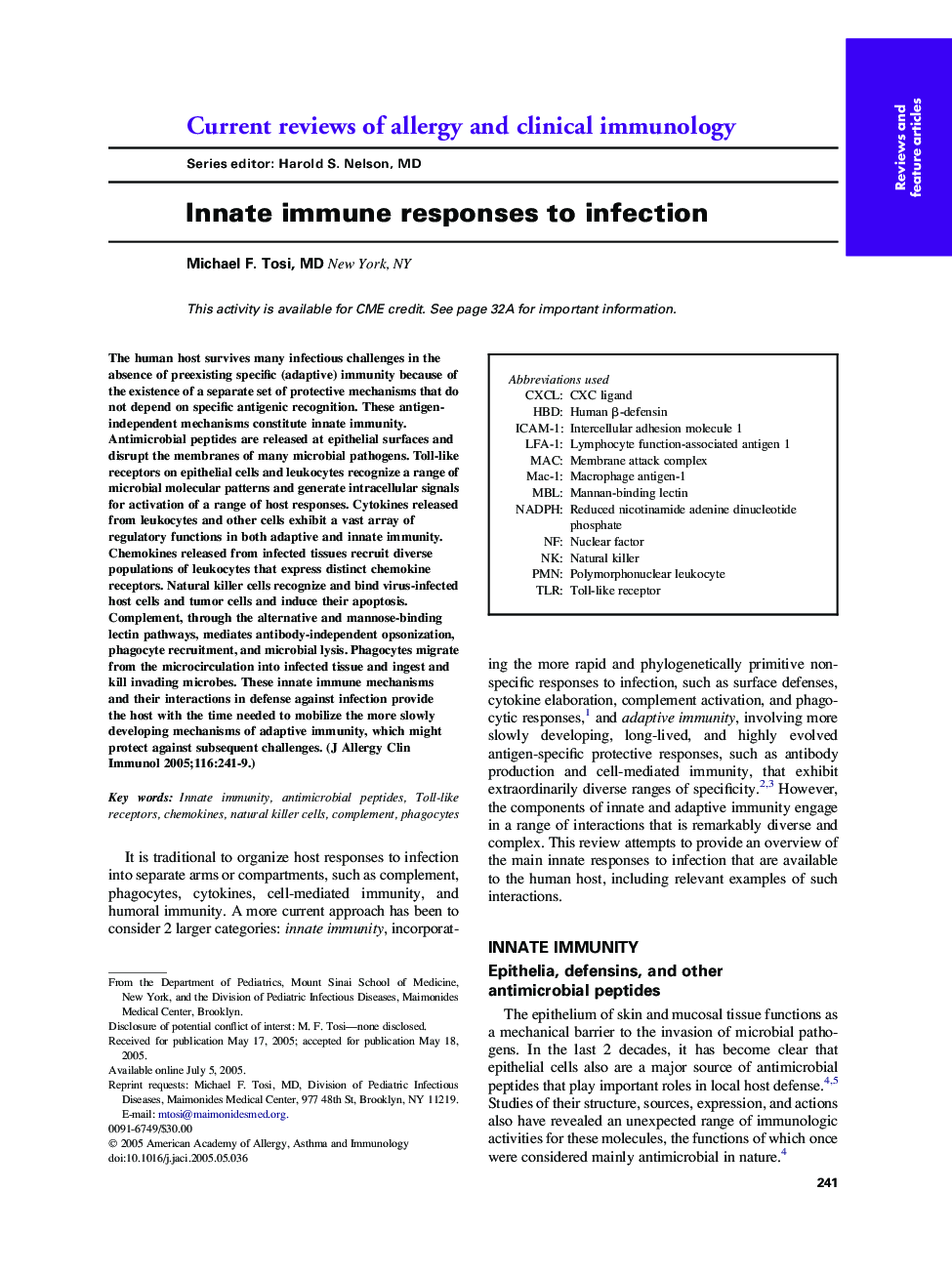| کد مقاله | کد نشریه | سال انتشار | مقاله انگلیسی | نسخه تمام متن |
|---|---|---|---|---|
| 9225647 | 1201996 | 2005 | 9 صفحه PDF | دانلود رایگان |
عنوان انگلیسی مقاله ISI
Innate immune responses to infection
دانلود مقاله + سفارش ترجمه
دانلود مقاله ISI انگلیسی
رایگان برای ایرانیان
کلمات کلیدی
LFA-1macrophage antigen-1CXC ligandCXCLPMNMBLTLRHbdICAM-1NADPHnatural killer - (سلول های) کشنده طبیعیhuman β-defensin - β-defensin انسانlymphocyte function-associated antigen 1 - آنتی ژن مرتبط با عملکرد لنفوسیت 1Innate immunity - ایمنی ذاتیToll-like receptor - تیالآرNatural killer cells - سلولهای کشنده طبیعیnuclear factor - عامل هسته ایPhagocytes - فاگوسیتهاMannan-binding lectin - لکتین اتصال دهنده مانانpolymorphonuclear leukocyte - لکوسیت پلی مرفون هسته ایComplement - متممIntercellular adhesion molecule 1 - مولکول چسبندگی بین سلولی 1MAC - مکMac-1 - مک 1Antimicrobial peptides - پپتیدهای پادمیکرب یا آنتیمایکروبیال پپتایدmembrane attack complex - پیچیده حمله غشاءreduced nicotinamide adenine dinucleotide phosphate - کاهش نیکوتین آمید آدنین دینکلوتید فسفاتChemokines - کرموین هاToll-like receptors - گیرنده های پولی مانند
موضوعات مرتبط
علوم زیستی و بیوفناوری
ایمنی شناسی و میکروب شناسی
ایمونولوژی
پیش نمایش صفحه اول مقاله

چکیده انگلیسی
The human host survives many infectious challenges in the absence of preexisting specific (adaptive) immunity because of the existence of a separate set of protective mechanisms that do not depend on specific antigenic recognition. These antigen-independent mechanisms constitute innate immunity. Antimicrobial peptides are released at epithelial surfaces and disrupt the membranes of many microbial pathogens. Toll-like receptors on epithelial cells and leukocytes recognize a range of microbial molecular patterns and generate intracellular signals for activation of a range of host responses. Cytokines released from leukocytes and other cells exhibit a vast array of regulatory functions in both adaptive and innate immunity. Chemokines released from infected tissues recruit diverse populations of leukocytes that express distinct chemokine receptors. Natural killer cells recognize and bind virus-infected host cells and tumor cells and induce their apoptosis. Complement, through the alternative and mannose-binding lectin pathways, mediates antibody-independent opsonization, phagocyte recruitment, and microbial lysis. Phagocytes migrate from the microcirculation into infected tissue and ingest and kill invading microbes. These innate immune mechanisms and their interactions in defense against infection provide the host with the time needed to mobilize the more slowly developing mechanisms of adaptive immunity, which might protect against subsequent challenges.
ناشر
Database: Elsevier - ScienceDirect (ساینس دایرکت)
Journal: Journal of Allergy and Clinical Immunology - Volume 116, Issue 2, August 2005, Pages 241-249
Journal: Journal of Allergy and Clinical Immunology - Volume 116, Issue 2, August 2005, Pages 241-249
نویسندگان
Michael F. MD,